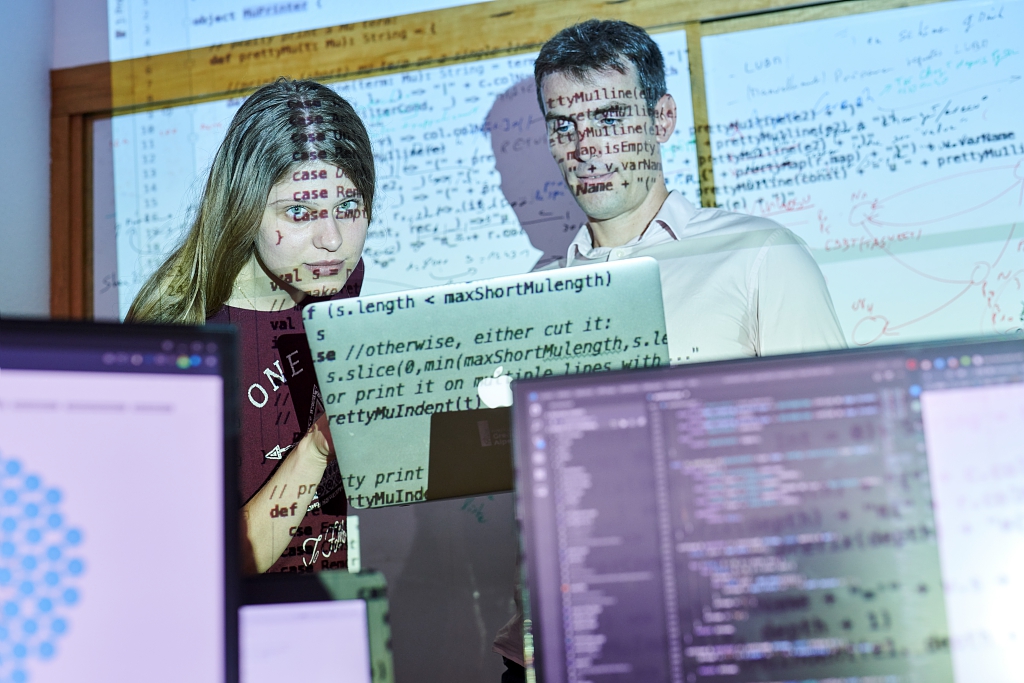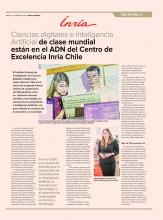The French Institute for Research in Digital Sciences has been working in Chile for nine years within the framework of the French-Chilean cooperation agenda, becoming a national scientific and technological reference in computer science and Artificial Intelligence, with great impact on sectors of the economy and society.

Inria Chile is a pillar of research excellence and technological impact. With more than 50 years of experience, nine sites in France and more than 4,500 researchers, the French Institute for Research in Science and Digital Technologies has been present in Chile since 2012, when it arrived through Corfo's Attraction of International Centers of Excellence for Competitiveness program, becoming the first and only site outside Europe. Since 2021, the center is part of the National Agency for Research and Development (ANID) of the Ministry of Science, Technology, Knowledge and Innovation.
In Chile, Inria has a team of more than 30 people and remains committed to scientific excellence, high-impact research and the training of advanced human capital, promoting French-Chilean cooperation, collaborating with universities and forging networks between researchers.
One of the highlights is the Associate Teams program, which aims to develop international research networks, in addition to the mobility program for Chilean students doing internships at Inria France and continuous training in digital technologies, with more than 500 people participating in Inria Academy since 2019 from the company's own catalog of open source software. As an innovation accelerator, Inria Startup Studio has supported more than 30 national startups. Moreover, it promotes the arrival of French startups in Chile and the landing of Chilean entrepreneurs in Europe. In 2020 it organized Trophée Startup, a call for Chilean startups in digital technologies for the health area, which will take two startups to an immersion in the French entrepreneurial ecosystem.

Verbatim
Our cooperation instruments foster coordinated work on significant research challenges in the digital area between the two countries. Our role is to be that gateway for technology transfer, knowledge exchange, and developing science and technology capabilities. This is highly relevant for Chile and must be preserved and strengthened for the future.
CEO of Inria Chile
Inria has developed frontier research in Artificial Intelligence, Machine Learning, Data Science, Interaction and Visualization, Modeling, and Simulation in Chile, generating more than 150 jobs. Last year, the Covid Mission made more than 30 scientific-technological projects available to the country. In particular, it adapted to Chile Icubam, a platform that uses Artificial Intelligence for the management and monitoring of ICU beds, and Risotto, a tool that organizes and orders scientific information on Covid-19 to optimize its use based on natural language processing algorithms.
Inria's work in astrocomputing stands out, with the integrated monitoring of the Alma observatory and the interaction system for the telescopes of the Vera C. Rubin observatory; in agriculture, Frost Forecast for early frost prediction; in mining, support for Sernageomin's digital transformation process to move from a preventive to a predictive service with the use of Artificial Intelligence; and in transportation, the control panel for the Bus Monitoring Center of the Metropolitan Region.
More than 100 R&D projects
In total, there are more than 100 projects applied to different areas, in collaboration with other centers, universities, industries and the public sector, where the contribution to the development of the National Artificial Intelligence Policy stands out.
"As a response to global challenges and aligned with national strategic policies such as the fight against climate change, we recently launched the OcéanIA project. This Inria Challenge addresses climate change as a grand Artificial Intelligence challenge. In this initiative, led by Inria Chile and funded by Inria, different national and French research centers collaborate, fostering cooperation and interdisciplinary scientific progress to contribute to finding new answers to global warming", explains Nayat Sánchez-Pi regarding this initiative that takes place over the next four years.

